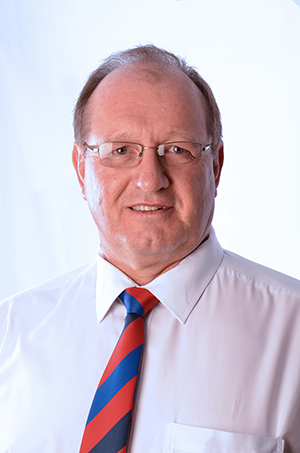Meet our Council Members: Derek Foster, ethical and responsible leadership role model
 Mr Derek Foster Mr Derek Foster
Photo: Stephen Collett
|
Derek Foster was elected to the Council of the University of the Free State (UFS) in October 2012. He was the first Chartered Accountant (South Africa) to be appointed to Council because of the role he could play through his training, background, and experience. In particular, it was his knowledge of corporate governance, ethics, and reporting that led to his serving currently on the Audit and Risk Committee, the Finance Committee, and the Investment Committee of Council.
This Kovsie alumnus qualified as chartered accountant at the UFS in 1978. During his student years, he played rugby for Oud-Studente, and served in the Evening Student Representative Council.
Until December 2010, Derek was a partner in PricewaterhouseCoopers, which he joined in 1972 as a rookie when the company was still known as Meyer, Nel and Co. Nowadays, he is a business consultant and company director, serving on the boards of NWK Limited, Cancer Association of South Africa (national), and Samba Cooperative Limited.
His background and knowledge of auditing shine through strongly when it comes to the manner in which he sees his role as Council member. “The contribution which I can make to the Council of the university is to ensure that management executes strategy and policy appropriately, as formulated and approved by Council, in the best interest of the university community. Of course, this should be done in an ethical, sustainable manner, taking into account the risk environment we find ourselves in. We need to provide ethical leadership, and ensure that the UFS is a responsible corporate institution,” he says.
Work obligations are keeping him very busy, but his four grandsons are equally high on his priority list. He met his wife, Sally, at Kovsies, another reason why the university is close to his heart. “Everything I do, I want to do with enthusiasm and passion, and I want to make a difference wherever I go. I would also like to be a good grandfather, and set a memorable example to my grandchildren,” he says.